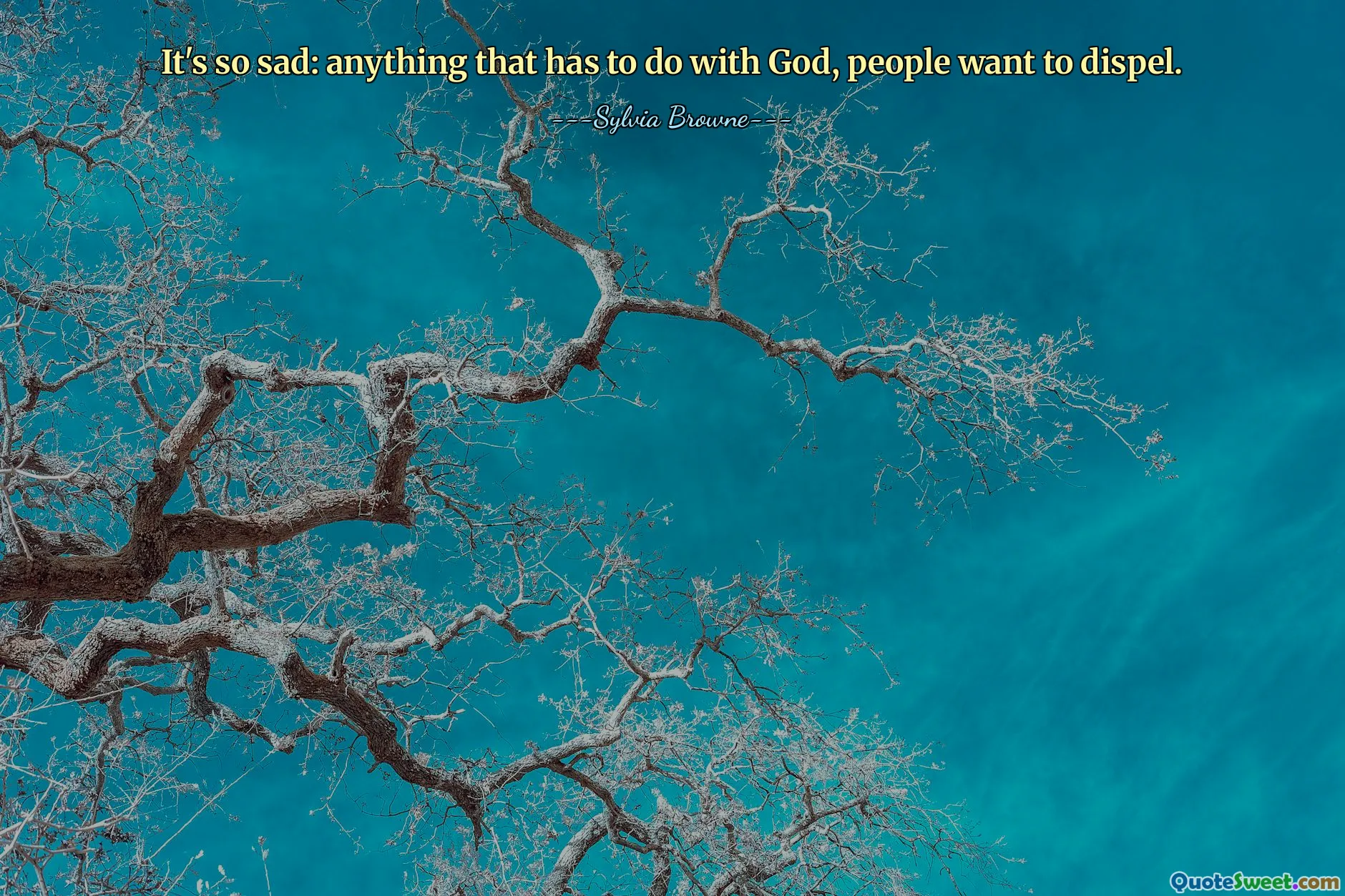
It's so sad: anything that has to do with God, people want to dispel.
The quote underscores a troubling aspect of human nature where spirituality and faith often face skepticism or outright rejection. Throughout history, societies have struggled with reconciling differing beliefs about the divine, which can lead to conflicts, misunderstandings, and a tendency to dismiss those who hold firm to their faith. In a world increasingly driven by rationalism and scientific explanation, it's easy to become skeptical about spiritual matters, often viewing them as outdated or irrational. However, faith provides comfort, purpose, and moral grounding for many individuals. The dismissive attitude towards anything related to God might stem from a desire for independence from religious authority, fear of accountability, or a belief that spiritual beliefs are incompatible with modern life or scientific facts. This skepticism can diminish the richness of human experience that spirituality encompasses — hope, love, humility, and the search for meaning beyond oneself. On the other hand, it also reflects a societal shift toward secularism and pluralism, where differing beliefs coexist but often lead to tension. Recognizing this dynamic reveals how vital it is to foster mutual respect and understanding, appreciating that spirituality can be a vital part of many people’s lives and that dismissing it outright can impoverish the societal fabric. Ultimately, spirituality touches on the fundamental human quest for understanding the universe and our place within it, making its suppression or disdain both a cultural and individual loss.







